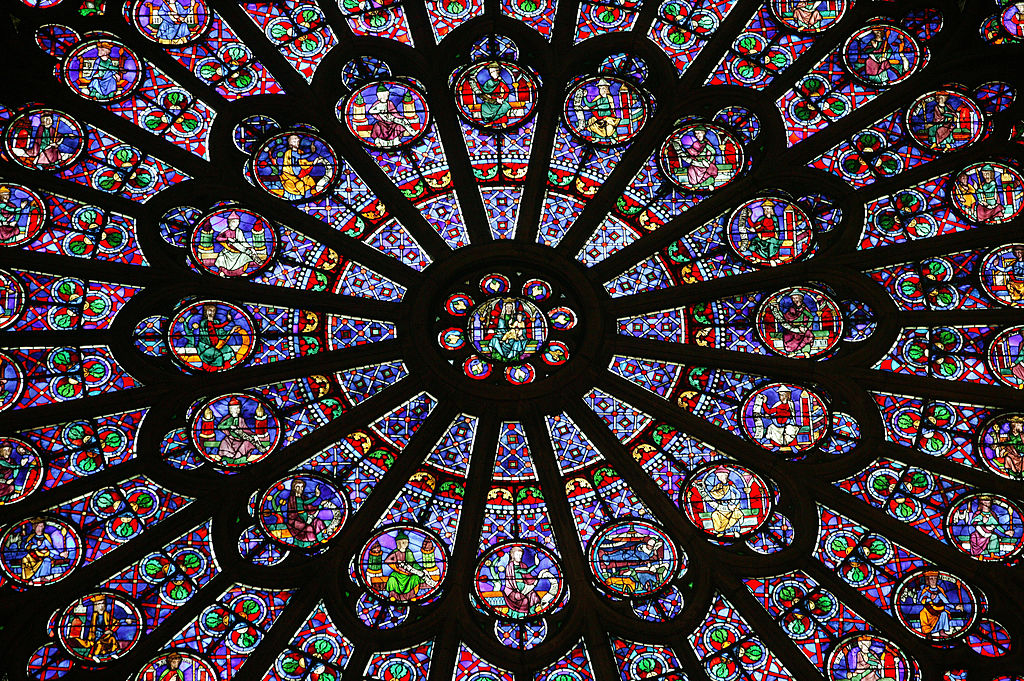
French authorities are investigating a sale by Sotheby’s auction house of a pair of stained glass that one heritage group claims were stolen from Paris’s Notre Dame cathedral in 1862.
The auction house offered the precious polychrome glass roundels, one of which features an angel holding a candle and the other an angel with an incense burner, in 2015. They sold separately with one fetching €123,000 ($132,000) and the other €111,000 ($119,000), trumping their high estimates of €60,000 ($64,000).
The catalogue notes acknowledged that, made in around 1250 and roughly 16 inches in diameter, the pieces had once been part of the monumental rose window of the cathedral’s northern transept, but were dismantled and replaced by the architect Eugène Viollet-le-Duc when he restored the building. The provenance showed that the pieces were later sold by the stained glass restorer Edouard Didron sometime between 1877 and 1905.
Now, the legitimacy of that 2015 sale is being called into question. French police have launched an initial probe into a legal complaint filed Monday, September 11, by the French association Lumiere sur le Patrimoine (Spotlight on Heritage), which investigates the sales of heritage objects that it suspects may have been stolen.
It alleges that the glass roundels were never Viollet-le-Duc’s to sell because anything taken from the cathedral automatically belongs to France. The Lumiere sur le Patrimoine was set up earlier this year by its chair Philippe Machicote after he became aware of the 2015 sale while looking through old auction catalogues. He founded the association after he contacted France’s ministry of culture to share his concerns, but did not receive “a real response.”
“At that date [1877–1905], the cathedral belonged to the state, and had since the revolution,” he told Le Figaro. “Anything taken from it in the 19th century was de facto imprescriptible and inalienable. The situation is ludicrous.” He described the works as being “hidden in a sale of old paintings, sculptures, and drawings.”
Sotheby’s said it was not contacted by the association before the complaint was filed and has denied any wrongdoing. “Sotheby’s complies with all applicable laws, regulations and restrictions wherever we operate in the world,” it said in a statement to Artnet News. “Before offering property for sale, we conduct research and due diligence as appropriate to satisfy ourselves that there are no legal obstacles.” It also pointed out that a similar pair roundels are currently in Geneva’s Museum of Art and History.
“Prior to offering these pieces at auction, we obtained all required permissions and export certificates from the relevant authorities, as well as alerting the experts and museum curators,” the statement continued. According to France’s law of preemption, the state and its national museums have the right to buy any cultural goods before they are sold to the public via auction or private sale, although it must match the winning bid.
More Trending Stories:
Price Check! Here’s What Sold—and For How Much—at Frieze Seoul 2023